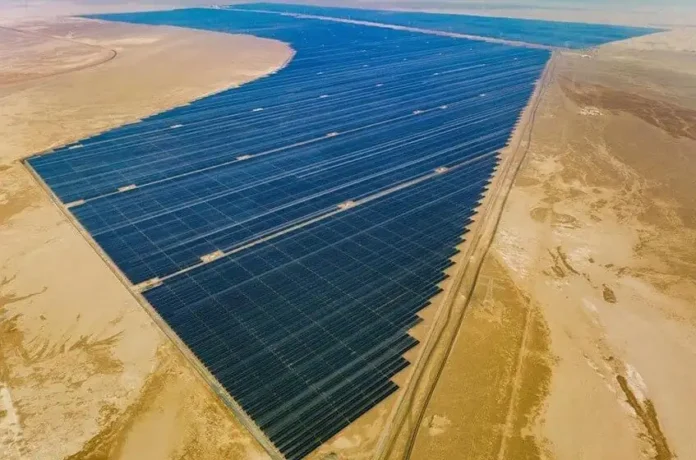Iraq is set to take a significant step forward in its renewable energy sector with the upcoming launch of a one-gigawatt solar power project in the southern Basra governorate.
The project, which is being developed by China Energy Engineering Corporation (Energy China), marks a major milestone in Iraq’s energy transformation, as the country aims to expand its capacity in both renewable energy and oil extraction operations.
Energy China, a state-owned company based in Beijing, has confirmed that construction of the solar plant will begin shortly in Artawi, a region in Basra known for its oil fields.
The project, which had been delayed for several years due to political setbacks, is seen as a key component of Iraq’s broader efforts to enhance its energy infrastructure.
Originally developed by the renewable energy branch of France-based TotalEnergies, the solar initiative is part of a larger $27 billion energy deal signed between TotalEnergies and the Iraqi government in 2021.
This agreement, which was initially mired in disputes between Iraqi political factions, aims to increase Iraq’s energy production capacity through a combination of oil, gas, and renewable energy projects.
The energy deal was officially revived last year after years of delays, with both sides determined to move forward despite the challenges.
The $27 billion agreement includes several ambitious projects, such as the development of the 1-gigawatt solar power plant in Artawi, which will provide electricity to the southern regions of Iraq.
In addition to the solar initiative, the deal encompasses the use of seawater for oil extraction, the Gas Growth Integrated Project (GGIP) to recover flared gas, and the expansion of the Artawi oilfield to boost production.
These projects, combined, aim to enhance Iraq’s energy self-sufficiency, addressing both domestic power shortages and the need to diversify the country’s energy portfolio.
TotalEnergies CEO Patrick Pouyanne, who was instrumental in securing the deal, hailed the signing ceremony as a “historic day” for both TotalEnergies and Iraq.
The agreement is expected to be implemented over 25 years, with a phased investment plan, beginning with an initial $10 billion earmarked for the early stages of development in southern Iraq.
The solar project itself is expected to play a critical role in providing cleaner energy to the region, significantly reducing the country’s reliance on traditional power sources.
The Iraqi Ministry of Oil has outlined that TotalEnergies’ energy projects in the country will be completed between 2028 and 2029.
Naseer Aziz Jabbar, Director General for Studies and Planning at the Ministry, emphasized that these projects would pave the way for a more sustainable and diversified energy future for Iraq.
Despite the setbacks in the deal’s early stages, including political disagreements over terms, the successful revival of this historic partnership between TotalEnergies and Iraq signals a positive shift for the country’s energy sector.
With the solar project now officially on track, Iraq is poised to make significant strides toward meeting its energy needs and reducing its carbon footprint, marking a new chapter in its energy landscape.

